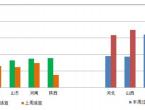
Eden
Oct 26, 2021 11:06

A Bitcoin futures ETF should be hitting the market Tuesday, marking a milestone for the surging cryptocurrency.
Fund sponsor ProShares appeared to have won regulatory approval late Friday for its Bitcoin Strategy ETF (ticker: BITO). The company filed a “post-effective” registration statement with the Securities and Exchange Commission, and the New York Stock Exchange approved the listing, according to securities filings. The fund is expected to start trading on Tuesday.
The ETF’s pending launch helped spark a rally in the coin. It was up 7% on Friday, trading above $61,600 for the first time since April. It’s now up nearly 50% since Sept. 30, when it traded around $41,500.
Fund sponsors have been trying for years to win approval from the SEC for Bitcoin ETFs. The SEC hasn’t approved any ETFs that would own Bitcoin directly—unlike some of the closed-end trusts now on the market. Still, if the ETF launches as expected, it could pave the path for more futures-based ETFs, including products from Invesco, VanEck, Valkyrie and others.
The approval of a futures ETF for bitcoin will be seen as only a partial victory by some in the crypto community, as the outlook for a similar fund that tracks the spot-market price of bitcoin remains unclear.
An ETF, which stands for “exchange-traded fund,” is an asset that trades on the open market like a stock and is open to regular investors. Some companies, such as Grayscale, have products that offer exposure to bitcoin already but they are only available to qualified wealthy investors or in over-the-counter markets, where the shares often trade at a price that does not match the underlying cryptocurrency.
“This will likely be the first of many Bitcoin futures-based ETFs,” says Todd Rosenbluth, head of ETF and mutual fund research at CFRA. He notes that the ETFs should have liquidity and cost advantages over other investment products that offer direct exposure to Bitcoin, including the Grayscale Bitcoin Trust (GBTC) and the Bitwise 10 Crypto Index Fund (BITW).
While ETFs may appeal to many investors looking for exposure to crypto in a fund wrapper, they’re just one of many avenues for exposure. Investors can buy Bitcoin and other cryptos directly on exchanges like Coinbase Global (ticker: COIN), Robinhood Markets (HOOD), or Webull. Apps like Square (SQ) and PayPal (PYPL) also make cryptos easy to buy.
Closed-end funds like Grayscale and Bitwise offer direct exposure to cryptos without going through futures markets. Their fees are relatively high, however, and they may trade at premiums or discounts to their underlying net asset value. Both now trade at discounts.
The ProShares ETF will have an expense ratio of 0.95%. That would make it less costly than the Grayscale Bitcoin Trust at 2% or the Bitwise Index fund with a 2.5% expense ratio.
Yet investing in Bitcoin through futures contracts has some drawbacks. While the contracts aim to track the spot prices of Bitcoin, they impose costs on investors because fund managers must continually roll over expiring contracts into new ones, resulting in “roll yields” that may be negative or positive, depending on futures prices in the near- and long-term.
One complication with the strategy is called “contango,” a situation that arises when a futures contract with a longer-term expiration trades at higher prices than contracts with short-term expirations. Contango can happen for technical reasons, and it occurs in commodities markets when investors expect prices in the future to be substantially higher.
Funds that primarily hold near-term contracts may take losses when futures are in contango, due to what’s called a “negative roll yield.” ProShares plans to manage the roll yields and hold longer-term contracts opportunistically.
One other complication for ETF investors is taxes. Futures contracts are generally taxed on a mark-to-market basis of unrealized gains and losses. Even if a fund doesn’t sell a contract, it may rack up a tax liability at the end of the year on unrealized gains. Moreover, a fund’s taxable income, which is distributed to shareholders, would consist of 40% short-term capital gains or losses, and 60% long-term, according to IRS rules.
ProShares says in its filing that investors should expect a “significant portion” of any capital gains or losses to be short-term.
That isn’t ideal for long-term investors. If Bitcoin keeps rising in price, an investor who bought and held for more than a year would owe tax on long-term capital gains on a sale. Long-term capital-gains rates are generally lower than short-term, which is equivalent to ordinary-income rates.
Still, the first Bitcoin ETF could be popular with advisors aiming to add crypto for clients. Including ETFs in client portfolios would allow them to charge management fees on the holdings, and ETFs tend to be quite liquid, allowing advisors to trade.
The ETF may also put pressure on funds managed by Grayscale, Bitwise and other crypto fund managers to lower their fees to compete.

Oct 26, 2021 11:06

Mar 31, 2022 10:26